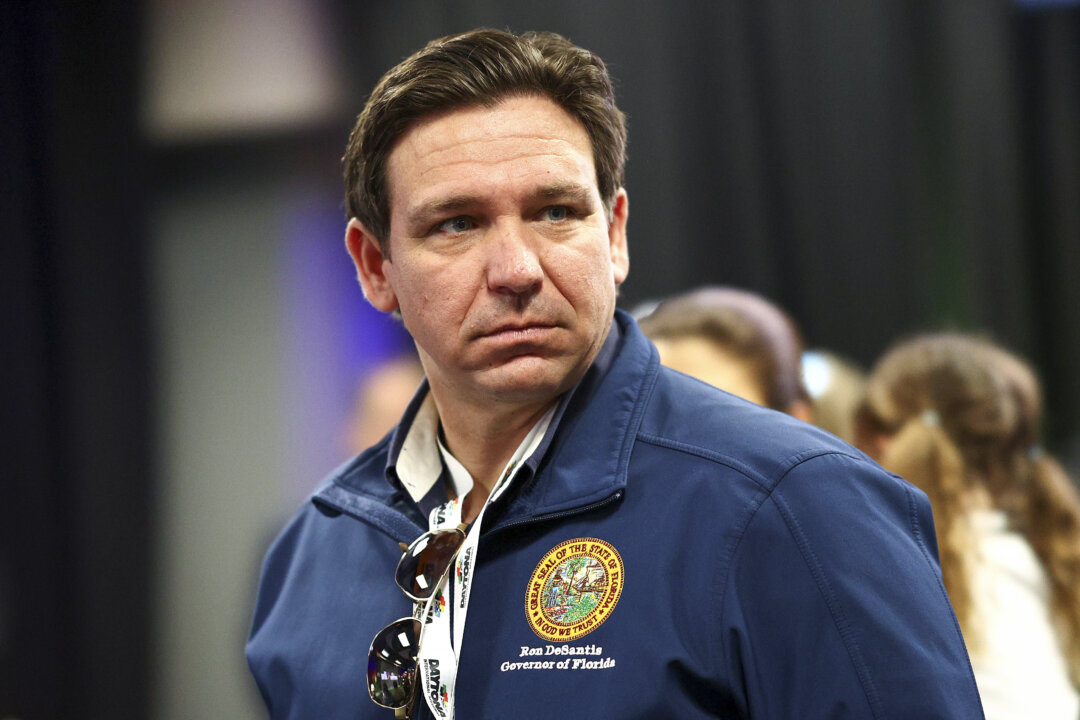The Florida Supreme Court has ruled in favor of Gov. Ron DeSantis and other state officials in a dispute over their advocacy against a proposed amendment to the state constitution that would limit government involvement in abortion matters.
In a unanimous decision on Oct. 10, the high court rejected a petition filed by Florida resident Adam Richardson, who claimed that DeSantis and others unlawfully used their official capacities and state resources to influence voters against Amendment 4.
The amendment aims to prevent the state of Florida from enacting laws that would penalize or restrict access to abortion before viability, defined in Florida statutes as when a fetus’s life is “sustainable outside the womb” and in cases where it’s “necessary to protect the patient’s health.” It was approved for ballot placement by a court earlier this year and is set for a public vote on Nov. 5, with a 60 percent majority required for it to pass.
Richardson’s petition claimed that DeSantis, Florida Attorney Genenal Ashley Moody, and Florida Agency for Health Care Administration (AHCA) Secretary Jason Weida violated state laws against election interference by making public statements and website posts by the AHCA that sought to persuade Floridians to vote against the amendment.
However, the Florida Supreme Court ruled against Richardson, finding that his request lacked appropriate legal mooring and that the actions he challenged were within the discretionary authority of the officials.
The justices determined that Richardson’s petition for a writ of mandamus—a type of court order used to compel an official action that is legally obligatory and not discretionary—was beyond the traditional use of such relief.
“Petitioner seeks relief far afield of the traditional scope of mandamus,” the justices wrote. “He challenges a fundamentally discretionary exercise of executive power on the ground that it transgresses a criminal or regulatory prohibition.”
The court emphasized that mandamus is not meant to address executive actions that involve judgment or discretion, particularly when other legal avenues are available to address the issue, such as civil enforcement or criminal prosecution.
The justices found that Richardson failed to prove a specific legal right that would obligate DeSantis and the other officials to take a particular action or that they failed in their legal duty.
“He has established no clear legal right as to which he can insist that any Respondent has failed in his or her duty to perform, and, in light of the statutes providing for criminal prosecution or civil enforcement, cannot show that there is no other remedy for the alleged wrong,” the justices wrote.
The court’s decision means that DeSantis, Moody, and other officials are permitted to continue their public advocacy against the abortion amendment.
Richardson, a Palm Beach County-based attorney who represented himself in the legal challenge, did not respond to a request for comment.
Liberty Counsel, a conservative advocacy group that filed an amicus brief in the case in support of DeSantis and the others, argued that public officials have a First Amendment right to speak in their official capacities on issues of public concern.
“Florida’s abortion amendment could have a devastating effect on the state’s residents if passed,” Mat Staver, the group’s founder and chairman, said in a statement. “Governor DeSantis and Attorney General Ashley Moody’s participation in the public debate over Amendment 4 is not only permissible but it is essential. They cannot ignore their obligation to educate the public about this deceptive and extreme abortion amendment.”
By contrast, Floridians Protecting Freedom, a coalition of groups that supports the amendment, has argued that Florida’s current abortion restrictions have had “serious impacts” on Floridians, who “deserve the freedom to make personal medical decisions, free of government intrusion.”
Currently, Florida law bans abortion after six weeks’ gestation, with exceptions only if two doctors confirm it’s necessary to save the woman’s life or prevent serious health risks or if evidence of rape, incest, or human trafficking is provided before 15 weeks.

